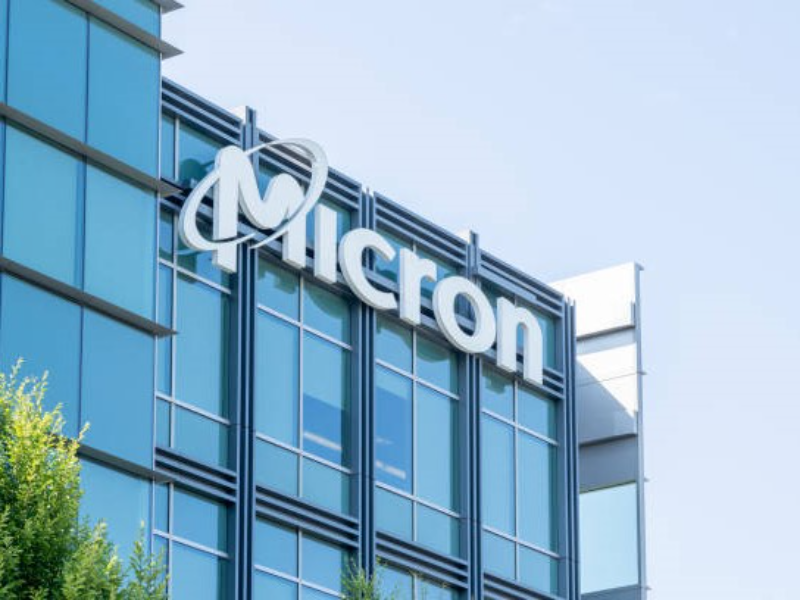- Micron Technology’s shares rose over 13% after a robust revenue forecast for high-bandwidth memory chips.
- The positive outlook signals strong demand for AI technology, boosting market confidence among chipmakers.
OUR TAKE
Micron’s surge underscores the vital role of HBM in the generative AI sector, boosting investor confidence. Its strong outlook alleviates pricing concerns, yet the DOJ investigation into Super Micro highlights ongoing regulatory challenges. Maintaining robust margins will be essential as the AI industry’s growth trajectory continues.
–Jasmine Zhang, BTW reporter
What happened
Micron Technology‘s shares surged more than 13% following its optimistic first-quarter revenue forecast, indicating strong demand and pricing for high-bandwidth memory (HBM) chips essential for generative AI applications. The company, a key supplier to Nvidia, is projected to add over $14 billion to its market capitalisation. In its fourth-quarter results, Micron reported its best revenue growth in a decade, with the forecast significantly exceeding Wall Street estimates.
Analysts noted that if Micron, typically a higher-cost memory provider, is confident in the market, it bodes well for the broader tech sector. Despite initial gains, shares of other chipmakers like Nvidia and Intel saw declines due to reports of a DOJ investigation into Super Micro Computer. Micron’s strong HBM pricing is expected to enhance its gross margins, alleviating previous concerns about weakening prices due to increased supply.
Also read: Micron’s stock soars as AI firms rush to secure HBM chips
Also read: Micron forecasts strong Q1 results amid demand for AI chips
Why it’s important
Micron Technology’s recent surge highlights the critical role of high-bandwidth memory (HBM) in the burgeoning generative AI market. As companies increasingly rely on sophisticated memory solutions to power advanced applications, Micron’s positive outlook not only boosts its stock but also reinforces investor confidence across the semiconductor sector.
The significance of HBM cannot be overstated; it enables rapid data processing and is essential for applications like machine learning and real-time analytics. While Micron’s strong forecast alleviates previous concerns about pricing and supply, it also reflects a broader trend where high demand is driving innovation and profitability.
However, the ongoing DOJ investigation into Super Micro Computer serves as a reminder of the complexities and regulatory scrutiny facing tech firms. As Micron navigates these challenges, its ability to maintain robust margins will be pivotal. This scenario suggests that the AI industry’s growth trajectory remains intact, despite the market’s inherent volatility.

